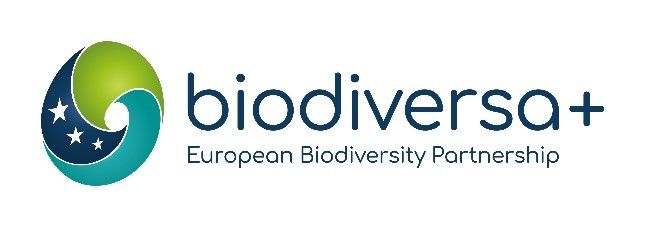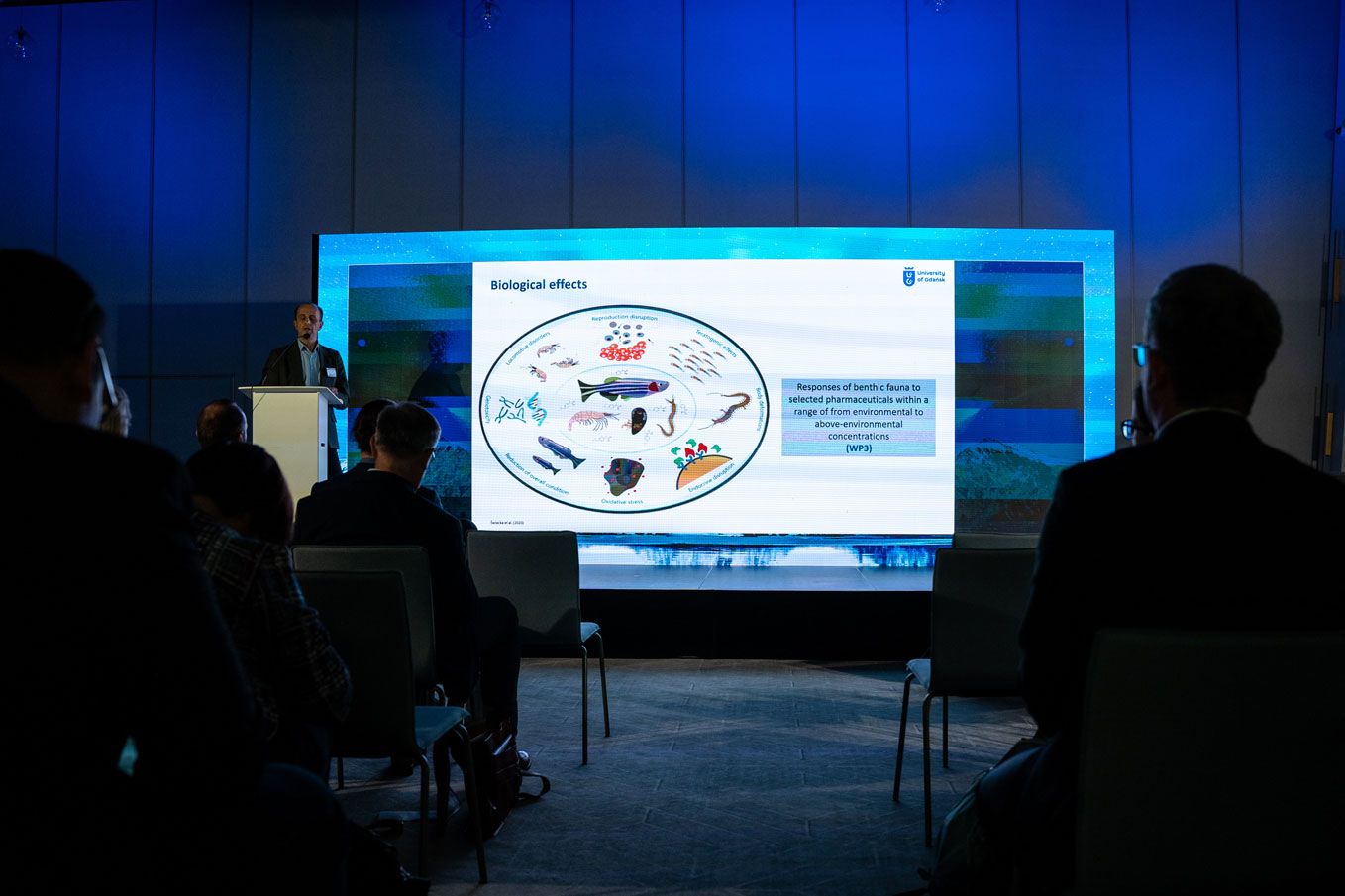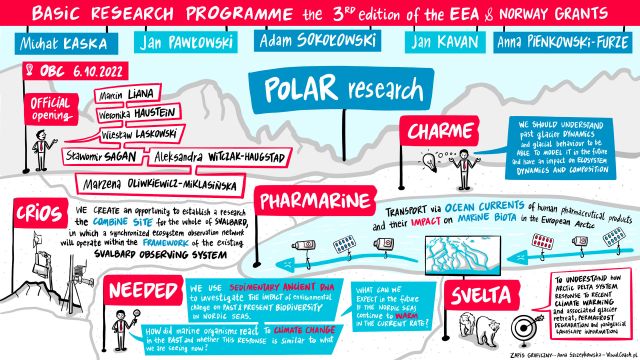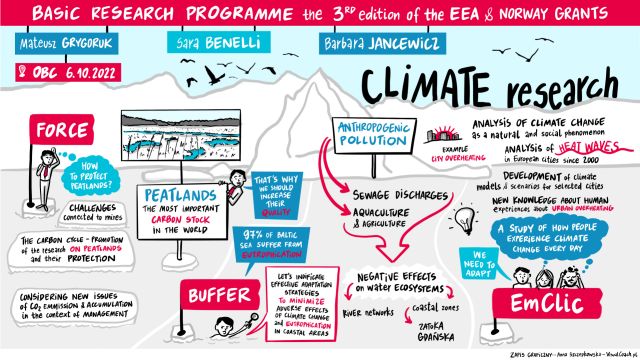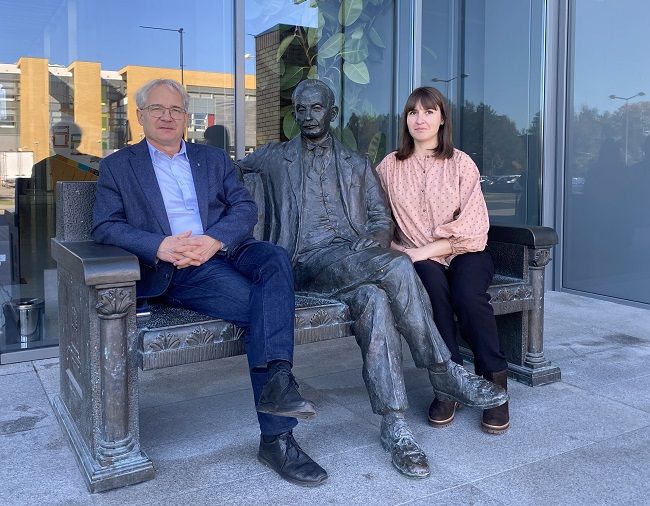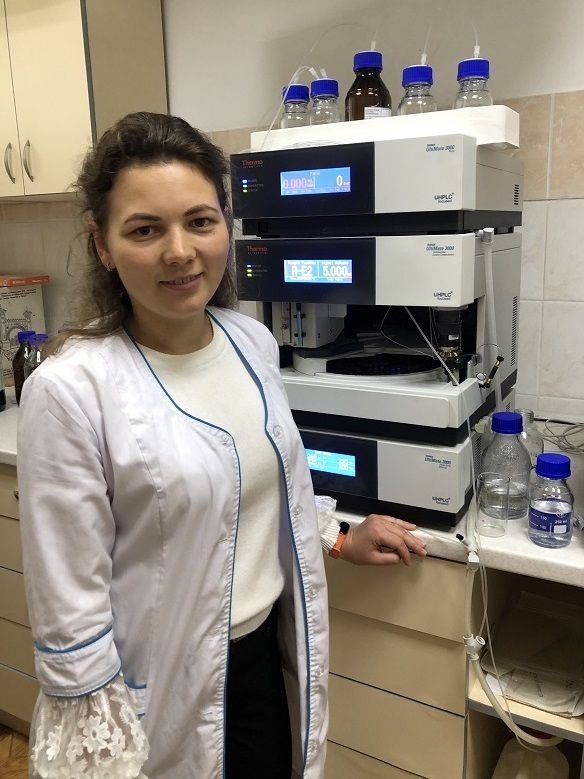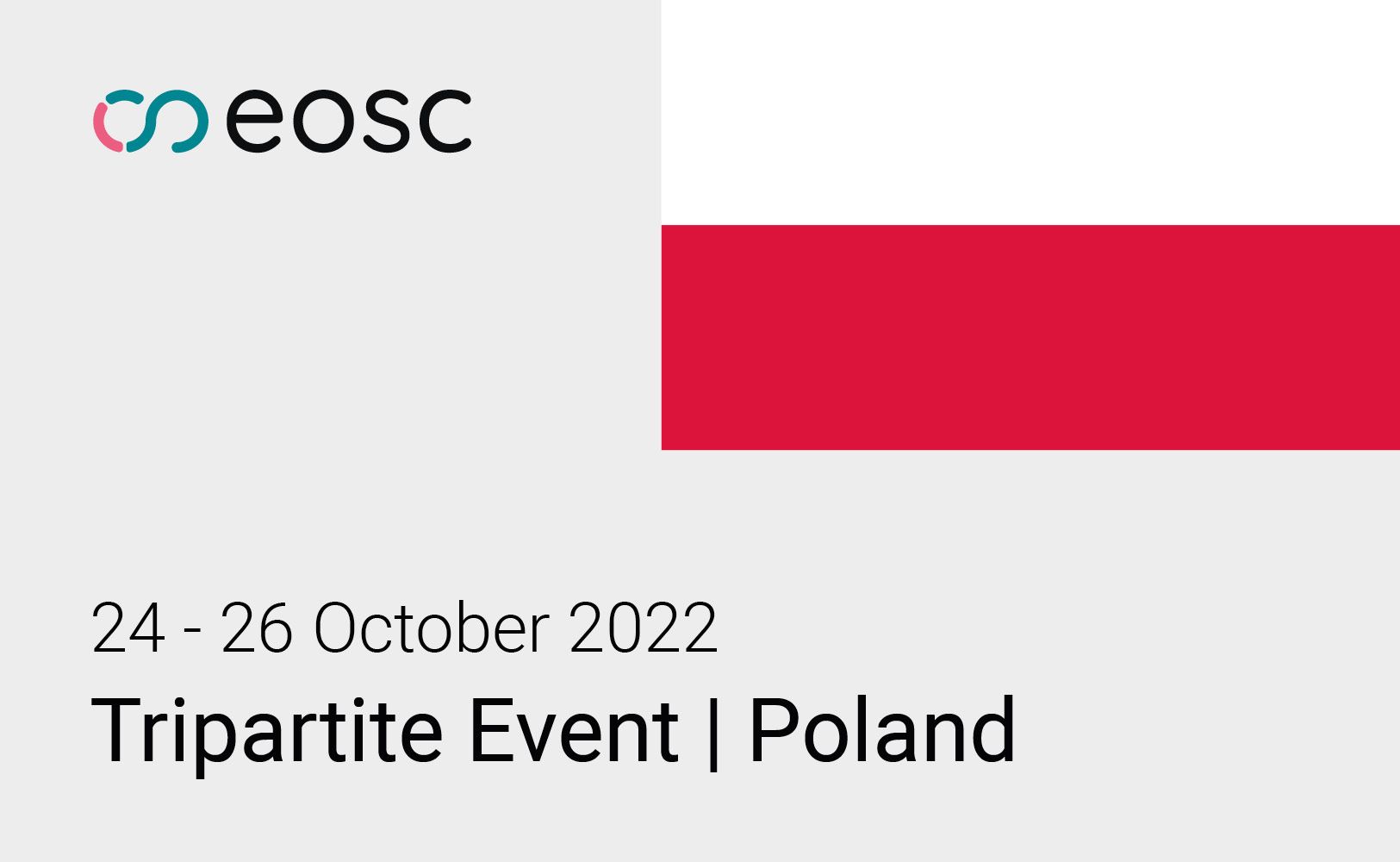Karolina Safarzyńska, Michał Bogdziewicz and Piotr Wcisło win NCN Award 2022. The awards ceremony for the most prestigious award given to early-stage researchers working in Poland was held on 12 October at the Gallery of 19th-Century Polish Art in Sukiennice. This year, the award was handed out for the tenth time in its history.
As many as 59 candidates vied for the award this year (there were 71 nominations in total, but some candidates were nominated by more than one person). The award is given out in three discipline panels. Dr hab. Karolina Safarzyńska, economist from the University of Warsaw, walked away with the award in Arts, Humanities and Social Sciences. In Life Sciences, the award went to a forest ecologist, dr hab. Michał Bogdziewicz, professor at the Adam Mickiewicz University in Poznań and member of the Polish Young Academy, PAS. A physicist, dr hab. Piotr Wcisło, professor at the Nicolaus Copernicus University in Toruń, carried off the award in Physical Sciences and Engineering.
Important and urgent research
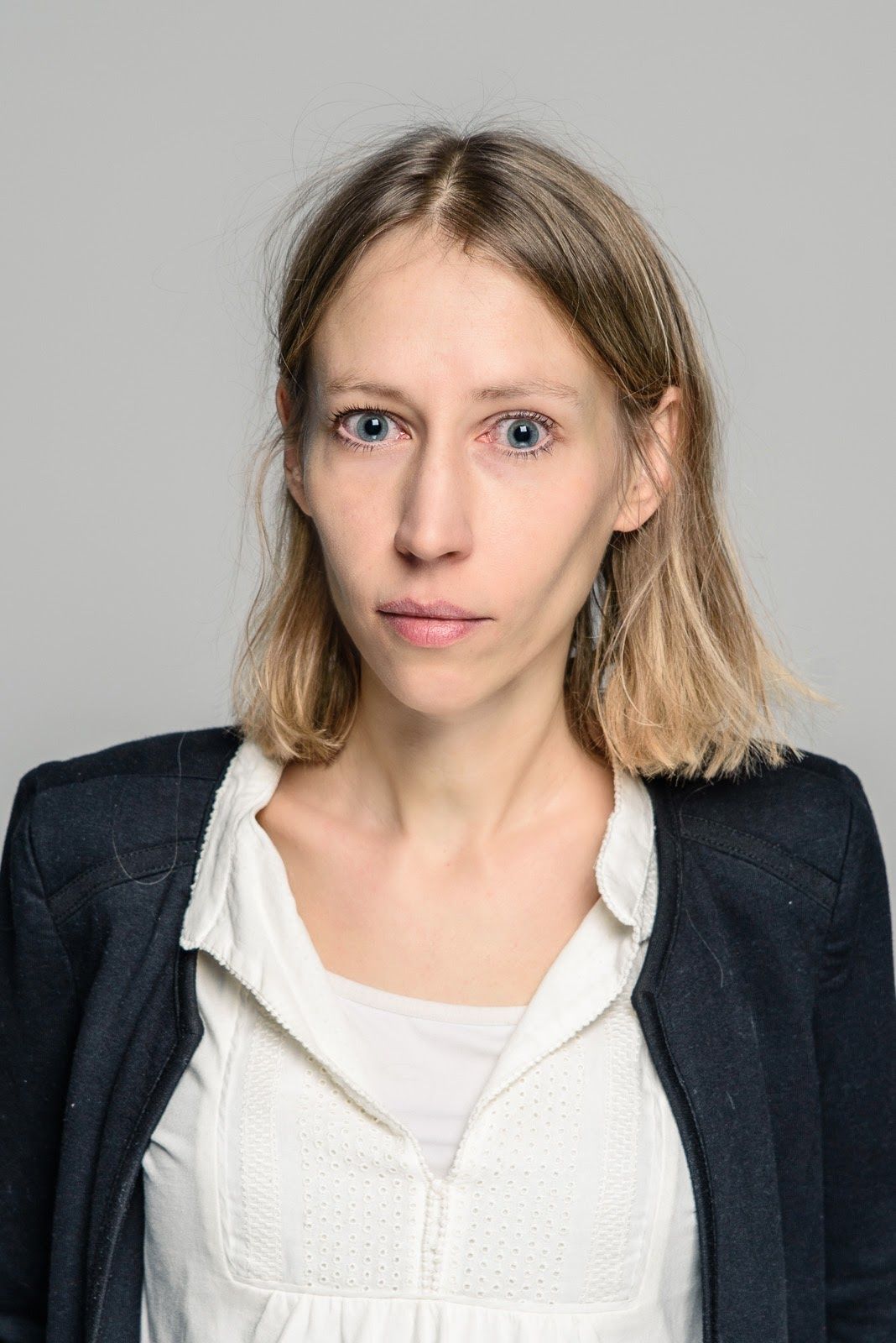 Karolina Safarzyńska, fot. archiwum prywatne
Dr hab. Karolina Safarzyńska, professor at the University of Warsaw, is an interdisciplinary researcher working in complexity economics, behavioural economics, and experimental economics, as well as climate change. She is affiliated with the Faculty of Economic Sciences of the University of Warsaw.
Karolina Safarzyńska, fot. archiwum prywatne
Dr hab. Karolina Safarzyńska, professor at the University of Warsaw, is an interdisciplinary researcher working in complexity economics, behavioural economics, and experimental economics, as well as climate change. She is affiliated with the Faculty of Economic Sciences of the University of Warsaw.
She won the NCN Award for her innovative theoretical models allowing to study the impact of limited rationality, preference diversity, and social interactions on climate policies.
Traditional macroeconomic models rest on a simplistic premise that people are always rational and do not interact with one another, and that “all” decisions in an economic system are optimized. “My models are a little bit more complicated than that. In complex systems such as the economy, many factors cross-influence one another. You cannot have simple policies to solve urgent problems”, says Safarzyńska.
The scientist creates theoretical models to study how a combination of policies, such as behavioural interventions and macroeconomic policies, can be effectively used to combat climate change. “If we assume that the economy is practically never in equilibrium, while people enter into a variety of social interactions and their actions are not always rational, we can influence their behaviour not only with financial incentives, but also by shaping their social networks and appealing to their emotions”, she adds.
Her research is urgent and important today. In many papers published in international journals, Safarzyńska showed, for instance, that the network effect may increase the probability of financial crises as a result of climate policies, while the diversity of consumer preferences crucially affects carbon tax levels (social interactions raise the tax, because by imitating others, we consume more, thus increasing the emissions that need to be counterbalanced).
Professor Safarzyńska earned her PhD degree at the Free University in Amsterdam and then completed research visits at institutions such as WU Vienna University of Economics and Business, Oxford INET, Santa Fe Institute, as well as internships at the UN, WTO, and the World Bank. Before starting off on a research career, she worked in several NGOs and international organizations.
She has previously won a scholarship of the Ministry of Science and Higher Education for outstanding young scientists. She is also a winner of three NCN grants. The purpose of her current project is to develop new macro-evolutionary models for the analysis of the circular economy.
The Winner of NCN Award 2022 in Arts, Humanities and Social Sciences – movie
A generation that fills the gap
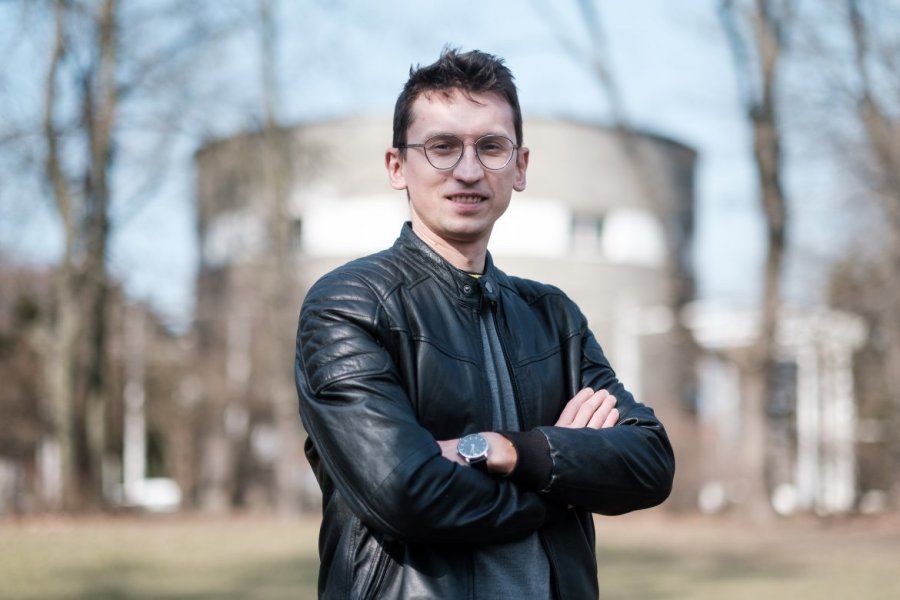 Michał Bogdziewicz, fot. Adrian Wykrota
“We know a lot about how different trees grow and how they die, but very little about how they are born. This kind of data is very difficult to collect”, says Professor Michał Bogdziewicz from the Adam Mickiewicz University in Poznań. He studies forest ecology, focusing on the biology of mast years, i.e. the years in which trees produce a particularly large quantity of seeds, and the impact of climate change on their reproduction.
Michał Bogdziewicz, fot. Adrian Wykrota
“We know a lot about how different trees grow and how they die, but very little about how they are born. This kind of data is very difficult to collect”, says Professor Michał Bogdziewicz from the Adam Mickiewicz University in Poznań. He studies forest ecology, focusing on the biology of mast years, i.e. the years in which trees produce a particularly large quantity of seeds, and the impact of climate change on their reproduction.
If you want to see how a tree grows under different conditions and how it’s affected by climate change, you can drill its core and measure how it was growing one or two hundred years ago. But to see how a tree produces seeds, you need to visit the same place year after year for a few decades. For logistical reasons, the problem of tree reproduction was not taken up in forest ecology for a long time. “It was taken for a fact that the seeds were just out there”, says Bogdziewicz. They only began to be monitored around thirty or forty years ago.
Professor Bogdziewicz belongs to the first generation of scientists trying to fill that gap in forest ecology. He has authored several dozen papers devoted to the complex processes involved in mast years and the impact of climate change on tree reproduction. He has described, for instance, the way in which global warming changes the patterns of seed production in the common beech, showing that more and more seeds are now destroyed by insects or fail to be pollinated at all, which may endanger the natural processes of forest regeneration. The common beech is one of the most important forest-forming species, of key importance to ecosystems and the forest economy.
Despite his relatively short career (he earned his PhD degree in 2017 and his habilitation in 2020), Bogdziewicz is already a scientist of international renown and has published several dozen articles in top research journals (e.g. PNAS, Nature Plants, Current Biology, Ecology Letters).
He is a winner of a Starting Grant of the European Research Council and five NCN grants, and scholarships from the National Agency for Academic Exchange (NAWA), Ministry of Science and Higher Education, and the Foundation for Polish Science (FNP). He has completed a number of foreign research fellowships. He is also a winner of the Poznań Research Award. In the spring of 2022, he became the first Polish researcher to receive the Tansley Medal for outstanding researchers in the early stages of their career, one of the world’s most prestigious awards warded to biologists who study plants. He was nominated for the NCN Award by five different scientists.
The Winner of NCN Award 2022 in Life Sciences – movie
The right path
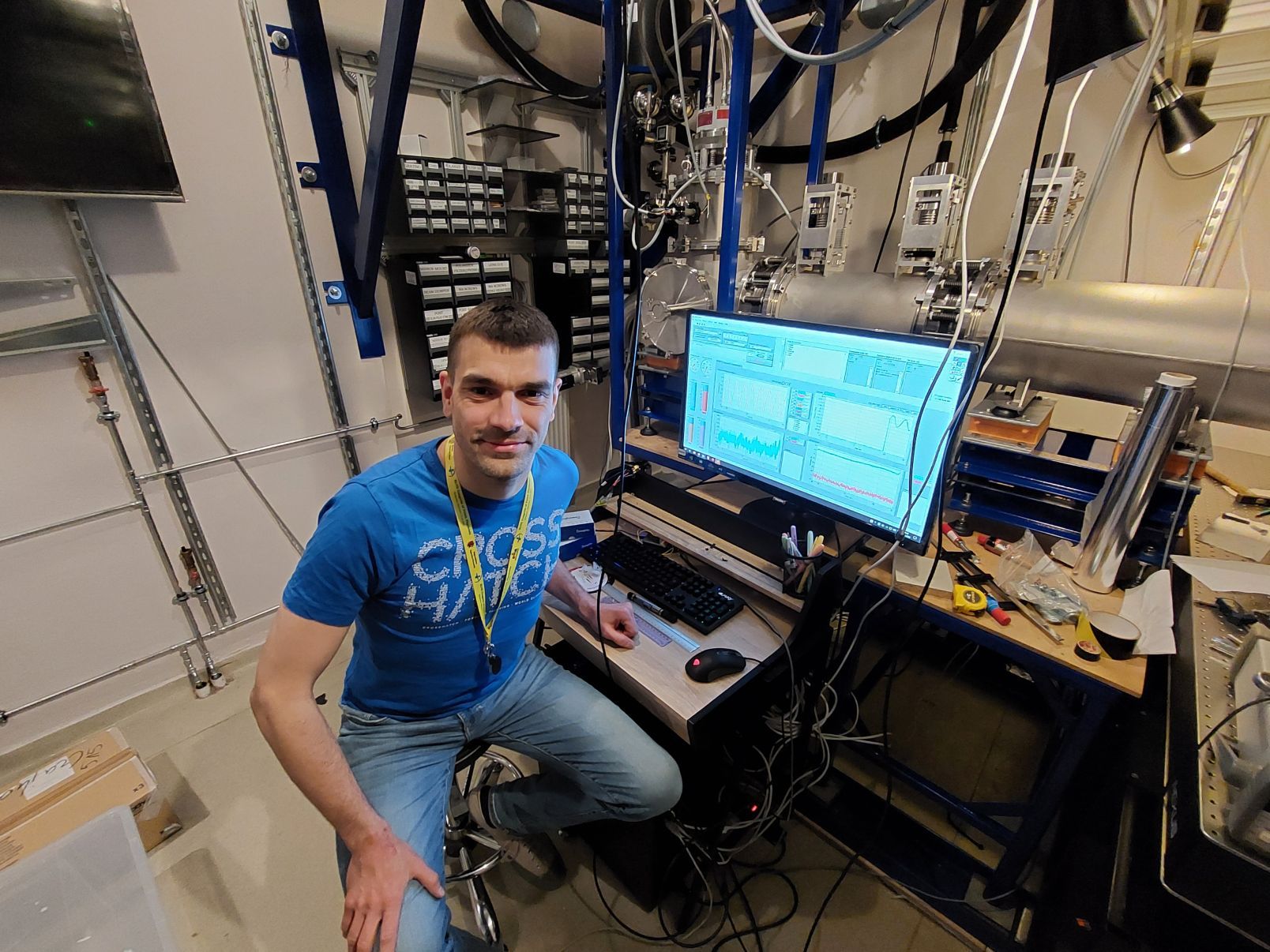 Piotr Wcisło, fot. Daniel Lisak
When he found out he won, Professor Piotr Wcisło did “what any physicist would do” – he looked at the statistics. “In Poland, we have a really strong community of young scientists. Formally, it is twice as easy to win an ERC grant as an NCN Award. And what’s more, you can’t even apply for the latter yourself”, he says. And then he adds that awards are important in any research career. “Our work often involves wading through the morass of intellectual failure, lost grants, and organizational pitfalls, but awards like this remind us that we have chosen the right path”.
Piotr Wcisło, fot. Daniel Lisak
When he found out he won, Professor Piotr Wcisło did “what any physicist would do” – he looked at the statistics. “In Poland, we have a really strong community of young scientists. Formally, it is twice as easy to win an ERC grant as an NCN Award. And what’s more, you can’t even apply for the latter yourself”, he says. And then he adds that awards are important in any research career. “Our work often involves wading through the morass of intellectual failure, lost grants, and organizational pitfalls, but awards like this remind us that we have chosen the right path”.
He won the NCN Award for developing a new method of searching for dark matter, using optical atomic clocks and relying on high-precision laser spectroscopy to test quantum theory and look for a new physics beyond the standard model. “The standard school curriculum does not even cover the basics of quantum physics, so what I do may seem rather abstract to most audiences”, the winner says.
Wcisło developed a new experimental method of searching for dark matter, which uses high-precision laser spectroscopy based on optical atomic clock technology. He also encouraged other centres that have such clocks to create a global network of these detectors. In cooperation with partners from the USA, France and Japan, the global observatory has already conducted its first observations.
As stated in his nomination, Professor Piotr Wcisło “has boldly stepped beyond the traditional approaches to testing the standard model and searching for a new physics”. “I use cutting-edge laser systems and other instruments, e.g. vacuum and cryogenic technologies, to test quantum theory. By relying on the capabilities of modern lasers, we can make high-precision observations of molecular and atomic structure”, he explains. His lab has been creating a brand new laser system, in which current spectroscopy techniques will are used at deep cryogenic temperatures, which may dramatically improve the accuracy of measurements of the structure of a hydrogen molecule.
Wcisło has completed a postdoctoral fellowship at the American Joint Institute for Laboratory Astrophysics; he has also been a Fulbright fellow at the Harvard-Smithsonian Centre for Astrophysics. He has won multiple awards and prizes, such as e.g. the Prime Minister’s Award for his PhD dissertation, the award of the Minister of Science and Higher Education for research achievements, the scholarship of the Ministry of Science and Higher Education for outstanding young researchers, and an award for outstanding research of the Polish Academy of Science. He has served as a principal investigator under five NCN grants, MNiSW and NAWA projects. He has also held a FNP scholarship.
The Winner of NCN Award 2022 in Physical Sciences and Engineering – movie
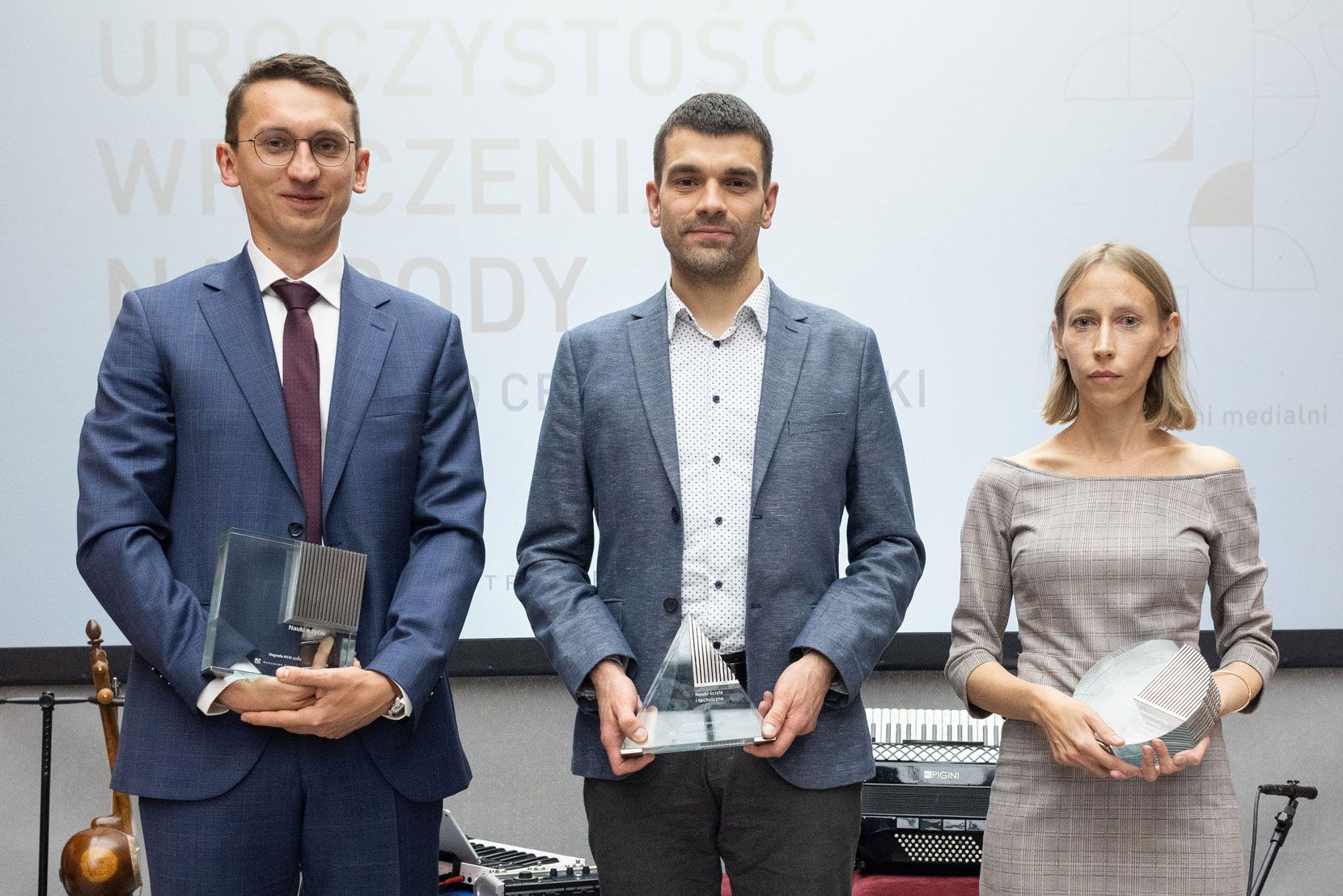
In 2022, the NCN Awards were given out for the tenth time in their history.
The NCN Award is given to researchers under the age of 40 with a substantial record in the field of basic research, as documented by publications affiliated with Polish research centres. The main criterion in the selection process is scientific excellence and international recognition in the field.
Candidates may be former winners of NCN grants, as well as people who have never run a project funded by the agency.
Only those born in 1981 and later were eligible for a nomination this year. Each winner will receive a prize of 50,000 zlotys. The nomination and selection procedure was described in Coming up: NCN Award 2022.
The NCN Award was given out under the patronage of Nauka w Polsce PAP and Forum Akademickie.
In November and December, the winners will deliver a series of popular science lectures, which will also be streamed live as part of the "Nauka w Centrum" [“Science in the Centre”] series on the YouTube channel of the Copernicus Centre for Interdisciplinary Research. The 2020 and 2021 lectures were watched by 70,000 viewers.














